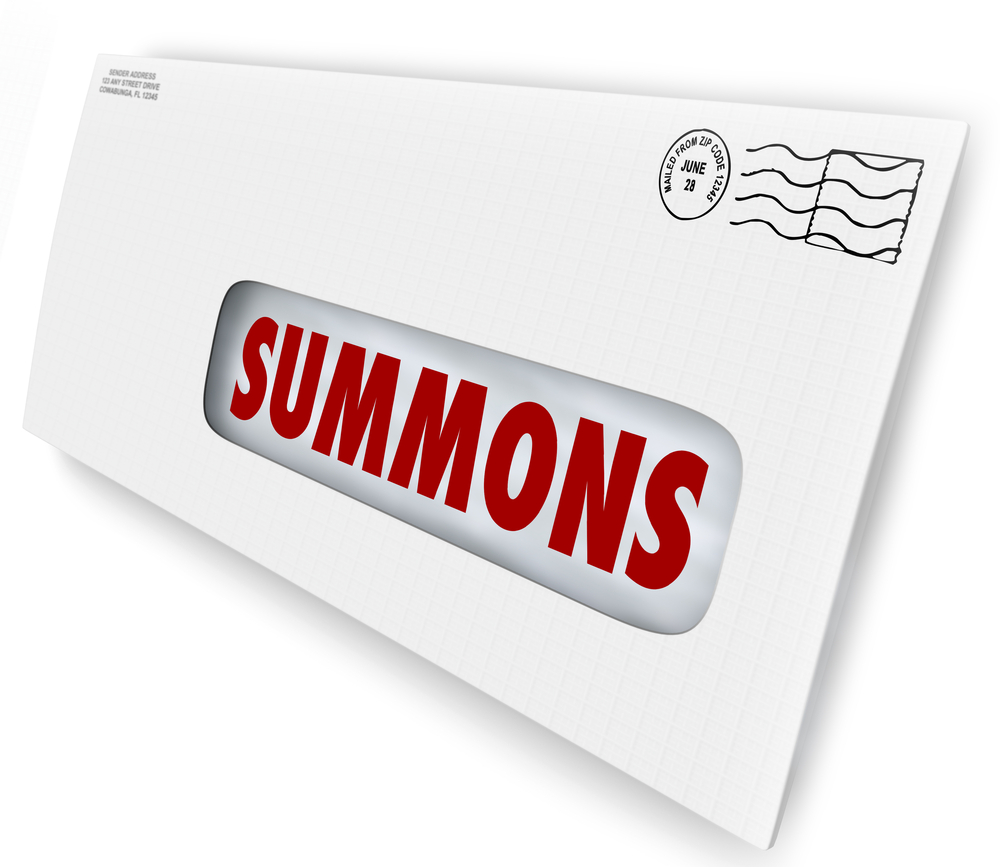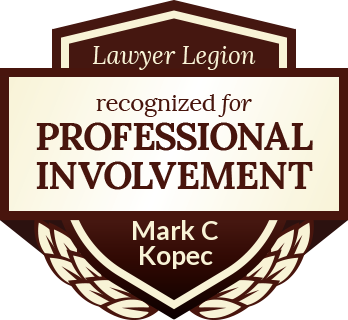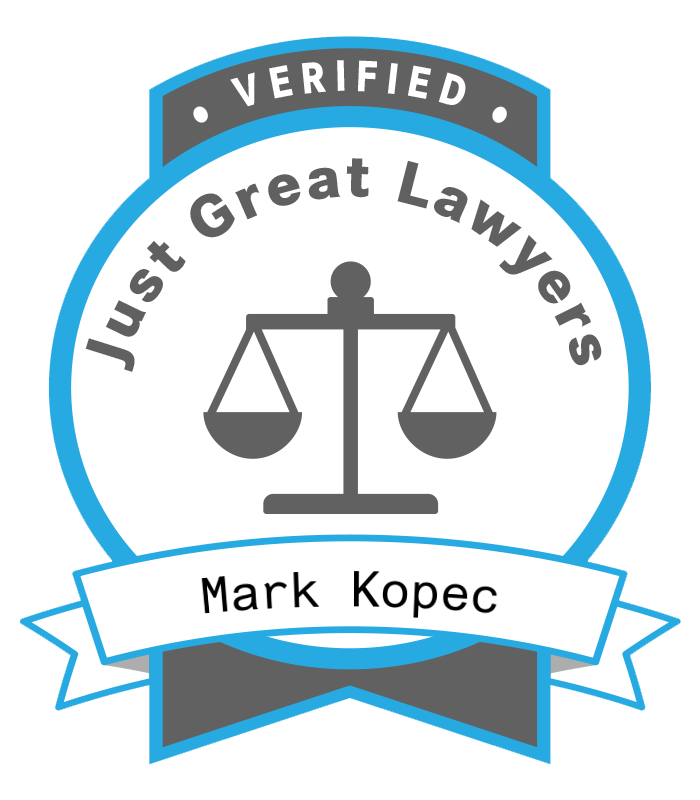Alternative Service: Mullen v. Thomas 2
The Baltimore Medical Malpractice Lawyer Blog also covers other Maryland personal injury cases in which issues arise that can also occur in medical malpractice cases. In this Part 2, I discuss the circumstances in which a plaintiff can use alternative means of service of process. The April 22, 2025, Appellate Court of Maryland unreported opinion in Mullen v. Thomas (No. 679) is the case. In Part 1, I discussed whether email service of process is an appropriate alternative.
Background on Alternative Means of Service of Process
This case involves a defamation claim filed in the Circuit Court for Prince George’s County. (Op. at 1). The plaintiff’s counsel filed an affidavit that he hired a process server to personally serve the defendant at a property believed to be the defendant’s residence. The server made attempts on four dates, but there was no answer each time. (Id. at 2).
The plaintiff’s lawyer hired a company to research the address and effect service of process. The server went to another address, and the resident and a property manager claimed not to know the defendant. (Id. at 2-3).

The plaintiff then filed a motion to serve the defendant by alternative means of service of process, specifically, email under Rule 2-121(c). The motion identified an email address that the defendant used in connection with the subject matter of the case. It included a copy of an email from that address to the plaintiff four months before. (Id. at 3).
The plaintiff then requested the court to reissue the summons. The court then denied the plaintiff’s motion, stating it did not identify efforts to locate the defendant’s current residence. (Id. at 4).
Not deterred by the initial denial, the plaintiff renewed the motion for service by alternative means of service of process (email), identifying the attempts at service of process at both properties. It also stated that a land records search for a current address was unsuccessful. (Id.).
The court granted the motion, finding that the plaintiff had made a good faith effort to serve the defendant and that mailing to the last known address would be impracticable. The court allowed service of process by email, mailing the documents, and leaving copies at the two properties. (Id. at 5).
Default
The plaintiff filed an affidavit of service of process by email and certified mail. (Id. at 5-6). When the defendant did not respond, the plaintiff filed a request for an order of default under Rule 2-613. She also provided a declaration that she had affixed documents at a conspicuous place at the second address and spoke to a resident who did not know the defendant. (Id. at 6).
The court entered an order of default and sent notice of the order and a hearing to the first property. (Id. at 7). The postal service returned this order as undeliverable. (Id. at 7-8).
The court held an ex parte hearing on damages and entered a judgment of $75,000 for the plaintiff. (Id. at 8). The court mailed the judgment to the first property, which the postal service returned as undeliverable. (Id.).
Motion to Vacate
Nine months later, the defendant filed a motion to vacate judgment under Rule 2-535(b) based on improper service. He stated that his address differed from the two properties where the plaintiff attempted service. The defendant had lived in Virginia for over two years, most of the time during the court proceedings. He stated he did not receive the email and provided possible technological reasons. The defendant said he learned of the judgment when someone told him the plaintiff had said the defendant owed him money. The court denied the motion as untimely. (Id. at 9).
The plaintiff filed a motion to set aside judgment under Rule 2-535 and CJP 6-408, arguing a mistake. The plaintiff opposed the motion, arguing that she complied with the alternative means of service of process and attached several emails sent to the defendant by the plaintiff and the court. The court denied the motion, and the defendant appealed. (Id. at 10).
Appellate Court of Maryland
In Maryland, service of process is under Maryland Rule 2-121. That Rule provides:
(a) Generally. — Service of process may be made within this State or, when authorized by the law of this State, outside of this State (1) by delivering to the person to be served a copy of the summons, complaint, and all other papers filed with it; (2) if the person to be served is an individual, by leaving 11 ‒Unreported Opinion‒ a copy of the summons, complaint, and all other papers filed with it at the individual’s dwelling house or usual place of abode with a resident of suitable age and discretion; or (3) by mailing to the person to be served a copy of the summons, complaint, and all other papers filed with it by certified mail requesting: “Restricted Delivery—show to whom, date, address of delivery.” * * *
(b) Evasion of service. — When proof is made by affidavit that a defendant has acted to evade service, the court may order that service be made by mailing a copy of the summons, complaint, and all other papers filed with it to the defendant at the defendant’s last known residence and delivering a copy of each to a person of suitable age and discretion at the place of business of the defendant.
Alternative Means of Service of Process
The Rule continues:
(c) By order of court. — When proof is made by affidavit that good faith efforts to serve the defendant pursuant to section (a) of this Rule have not succeeded and that service pursuant to section (b) of this Rule is inapplicable or impracticable, the court may order any other means of service that it deems appropriate in the circumstances and reasonably calculated to give actual notice.
(d) Methods not exclusive. — The methods of service provided in this Rule are in addition to and not exclusive of any other means of service that may be provided by statute or Rule for obtaining jurisdiction over a defendant. (Id. at 11-12).
Under Rule 2-121(c), before granting alternative means of service of process, the court must find that the plaintiff has proven two things: (1) that she has made good faith efforts to serve the defendant under Rule 2-121(a); and (2) that service of process under Rule 2-121(b) would be inapplicable or impracticable. If the plaintiff makes such a showing, the court is free to customize a method of service of process based on the facts and circumstances, restricted only by the need to be “reasonably calculated to give actual notice” to the defendant. (Id. at 12).
Insufficient Search
The Appellate Court concluded that the plaintiff’s investigation to determine the defendant’s address was less than thorough. The plaintiff also had other avenues to find out the defendant’s address or to serve him with process. Both parties served on the board of an organization as president and treasurer. The plaintiff did not demonstrate that she used this connection to aid the attempt to serve the process. The defendant also stated that the board members knew his tax preparation business, and information about its location and resident agent is available online. As a result, the Appellate Court concluded that the plaintiff did not make good faith efforts to serve process on the defendant. (Id. at 20-21).
The plaintiff also failed to demonstrate the inapplicable or impractical component under the Rule. Nothing in the record suggested that serving process on the defendant at his business would have been inapplicable or impractical. (Id. at 21-22). Because the service of process was improper, the circuit court did not have personal jurisdiction over him, and the Appellate Court reversed the judgment. (Id. at 24).
Commentary by Baltimore Medical Malpractice Lawyer Mark Kopec on Alternative Means of Service of Process
Unsurprisingly, the Appellate Court was unimpressed with the plaintiff’s attempts to locate the defendant. Although the plaintiff hired a company to find the defendant, it is puzzling how the only information that the plaintiff received was two residential addresses that were not correct, and no information concerning the defendant’s business.
What can plaintiffs learn from this court opinion? The court expects a thorough search. In many cases, that will demonstrate to the court that the plaintiff searched for all information available through the internet, and through any persons known to the plaintiff who may have information about the defendant’s whereabouts. Hiring a good investigator with access to databases that may not be public is also a good option for plaintiffs. The plaintiff should document all of the above and submit it to the court regarding any request to allow alternative means of service of process.
Following these steps should ensure that an appellate court would uphold any alternative means of service approved by the circuit court.
You can also read other Blog posts on procedure.
Mark Kopec is a top-rated Baltimore medical malpractice lawyer. Contact us at 800-604-0704 to speak directly with Attorney Kopec in a free consultation. The Kopec Law Firm is in Baltimore and helps clients throughout Maryland and Washington, D.C. Thank you for reading the Baltimore Medical Malpractice Lawyer Blog.





